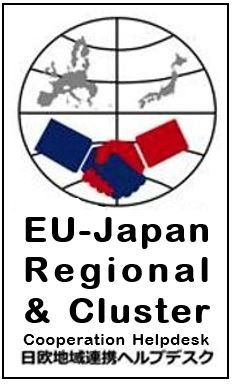Blog Layout
EU-JAPAN NEWS December 2020

EU-JAPAN BUSINESS ROUND TABLE
A NEW WAY FORWARD
The 22nd annual meeting of the EU-Japan Business Round Table (BRT) on 5 November, led by Mr. Philippe Wahl of Le Groupe La Poste for the EU side and Mr. Masaki Sakuyama of Mitsubishi Electric Corporation for the Japan side, saw in-depth exchanges between business leaders on the impact and implementation of the EU-Japan Economic Partnership Agreement and how it has weathered the covid storm; on the importance of rules-based free and open trade; on the need for data free flow with trust and human-centric safe-guards, if the full potential of 5G is to be realised; on new opportuni-ties to be created by regulatory cooperation, standards convergence, the green transition, digital transformation, business cooperation in third markets, e.g. Asia and Africa; and on how to reorient the work and functioning of the BRT.
METI Minister Hiroshi Kajiyama, Internal Market Commissioner Thierry Breton, MOFA State Minister Eiichiro Washio and MIC Vice Minister Mabito Yoshida and other representatives of the Authorities had an exchange of views with the BRT on the functioning of the EPA, digitalisation, data flows and regula-tory frameworks, covid-19, green issues and on business collaborations in third countries. The BRT’s 2020 Recommendations were formally handed over by Chairman Sakuyama to METI Minister Kajiyama.There was unanimous support for the need to strengthen EU-Japan coopera-tion building on the promising initial results to the EPA and SPA, to underpin our economic recovery, provide leadership in the setting of standards and to emphasise the importance of multilateral and free and open trade. Given this virtuous circle, it is essential that the BRT reviews its activities, make-up and methods so that it is able to support and help shape public policy leading to new possibilities for EU-Japan coopera-tion at home and in third countries. Senior industry and Authority representatives from the EU and Japan see the coronavirus pandemic as being both a disrupter and an accelerator of change. Whilst, trade flows and supply chains have been severely affected and travel restrictions – introduced for the best of motives – have been disruptive, covid has led to new ways of working and highlighted the importance of digitalisation and IT tools.The EU-Japan Centre for Industrial Cooperation (a DG GROW and METI joint venture) is happy to assist in the above way forward for the BRT, including via exploring for the 2021 meeting the possibility of organising a trilateral US-Japan-EU business discussion session for building common paths and preserving the benefits of openness.
Yasuo Tanabe and Philippe de Taxis du Poët Managing Director, of the EU-Japan Centre for Industrial Cooperation
23 Mar, 2021
SME INTERNATIONALISATION AND DIGITALISATION The covid-19 pandemic is a powerful trigger and accelerator of the digitalisation of business support services towards the internationalisation of SMEs, for example: •The digitalisation of business matchmaking services ena-bles increased outreach to many more SMEs as compared to physical matchmaking. It also opens the door to a new profile of SMEs which would have never participated in physical business missions outside the EU (covid-19 or not) by lack of time, money and staff. Hence, reaching out a hid-den part of the SMEs world with big potential. •Virtual business matchmaking has become a crucial asset for SMEs to survive these economic difficult times without dropping their internationalisation strategy. It enables them to continue building international partnership as it reduces the transaction costs and save resources. •Digitalisation also enables SMEs to evaluate more quickly and more regularly new markets and business oppor-tunities. They are then able to react more quickly to opportunities and threats with respect to changing market attractiveness. They can internationalise early, flexibly and fast, with fewer travel costs and less time.•Although the negative impact of the coronavirus crisis on businesses is a serious problem, it has also triggered a surge of new start-ups being set up in Europe, Japan and the US. As mentioned in a recent FT article (https://www.ft.com/content/3cbb0bcd-d7dc-47bb-97d8-e31fe80398fb), 10,000 new businesses were registered in September 2020 in Japan, 14% more than in the same month last year. France registered 84,000 new businesses in October 2020, up 20% on the same month last year and the highest ever recorded. •Given the major trend for EU-Japan business cooperation in third markets, digitalisation facilitates tri-lateral business matchmaking between the EU, Japan and third countries. They can more easily go beyond bilateral cooperation between the EU and Japan, and hence project EU-Japan business partnership to third countries, e.g., Asia or Africa. Digitalisation and internationalisation go hand in hand to provide opportunities to many more SMEs, for internationalising in a cheaper, faster, greener, more global and flexible ways, and delivering higher productivity compared to the ‘usual’ physical practice.It is dramatically changing patterns of entrepreneurial opportunity pursuit, value creation, innovation in the economy, and internationalisation. The 4th ‘industrial revolution’ is upon us. Does it mean that the above digitalisation assets for building international business partnership will make obsolete the regular physical journey? Probably not, as no matter how easy and effective it is to talk digitally, there is something else that face-to-face communication brings. Business is about building relationships and trust. It has an emotional dimension that a real-word event can – for the moment – enable more easily than a virtual one. The key challenge is likely to be how best to articulate the assets of digitalisation with the ones of the physical way. Perhaps via a double step approach, with first a large digital business matchmaking, followed by a much smaller physical one for finetuning. Dr. Philippe de Taxis du PoëtManaging Director, EU-Japan Centre for Industrial CooperationMinister Counsellor, Delegation of the EU to Japan Discover the full version
If you have any questions,feel free to contact us
CONTACT US
06 30 79 66 76
EU office
(Grand-Est Region - France)




